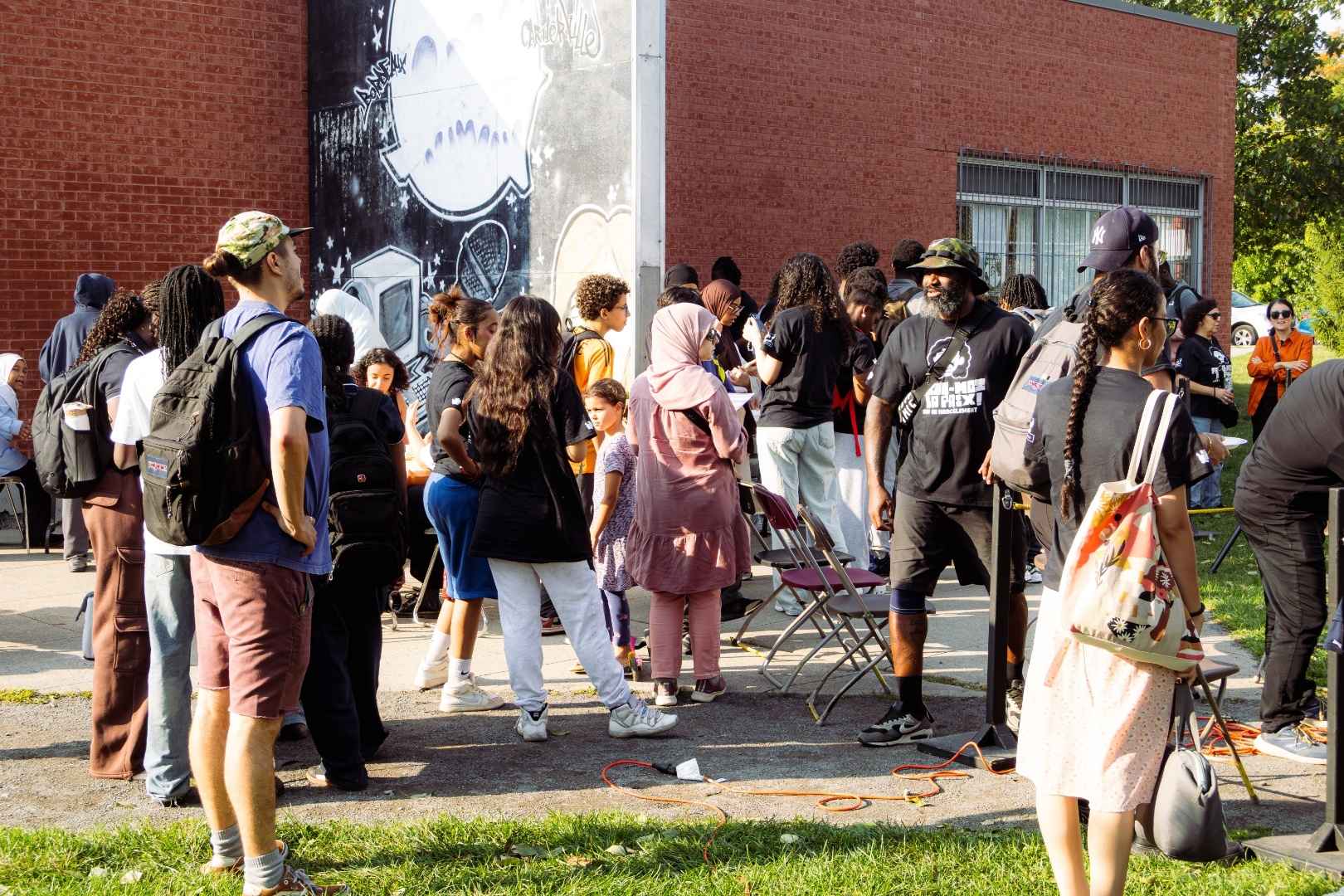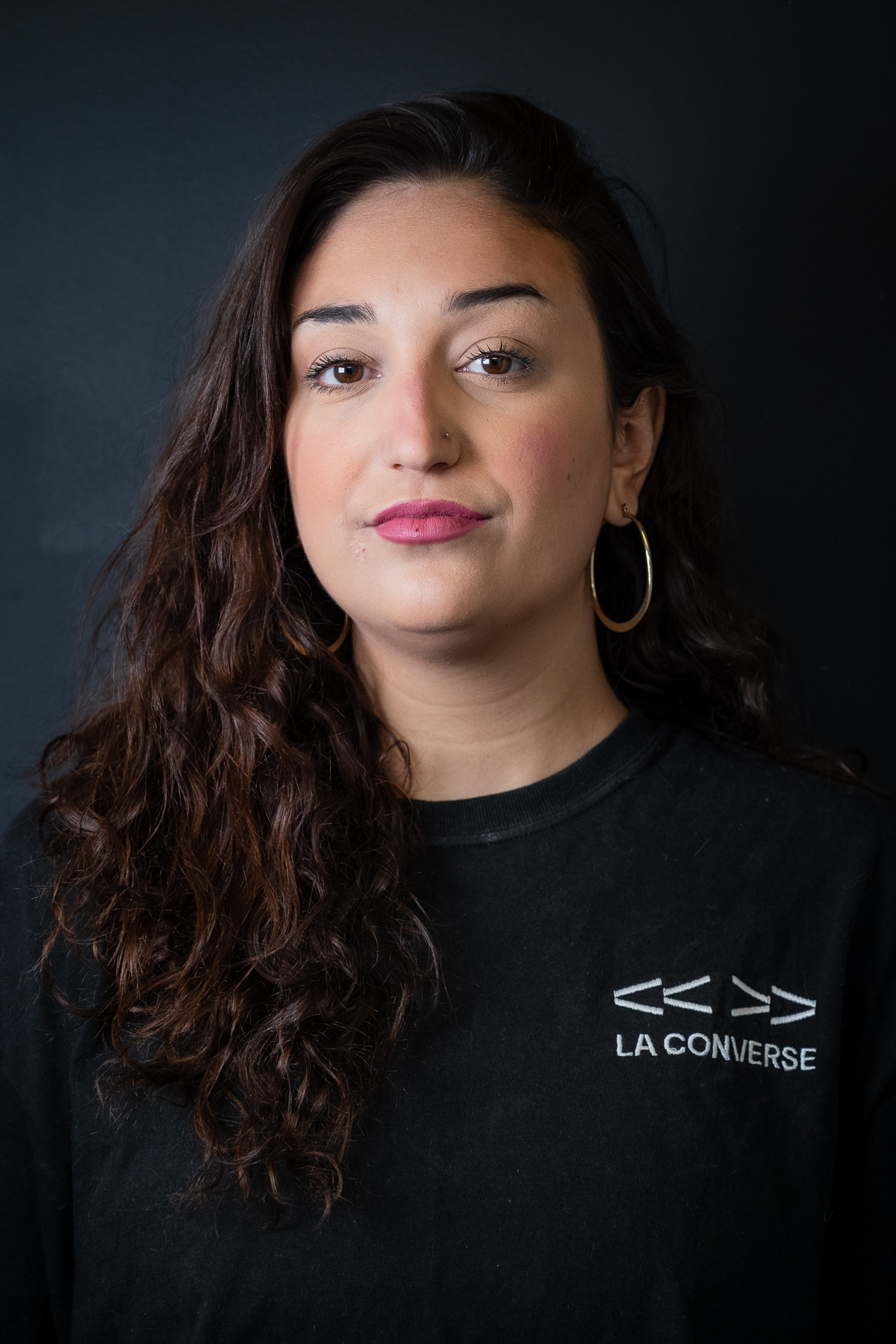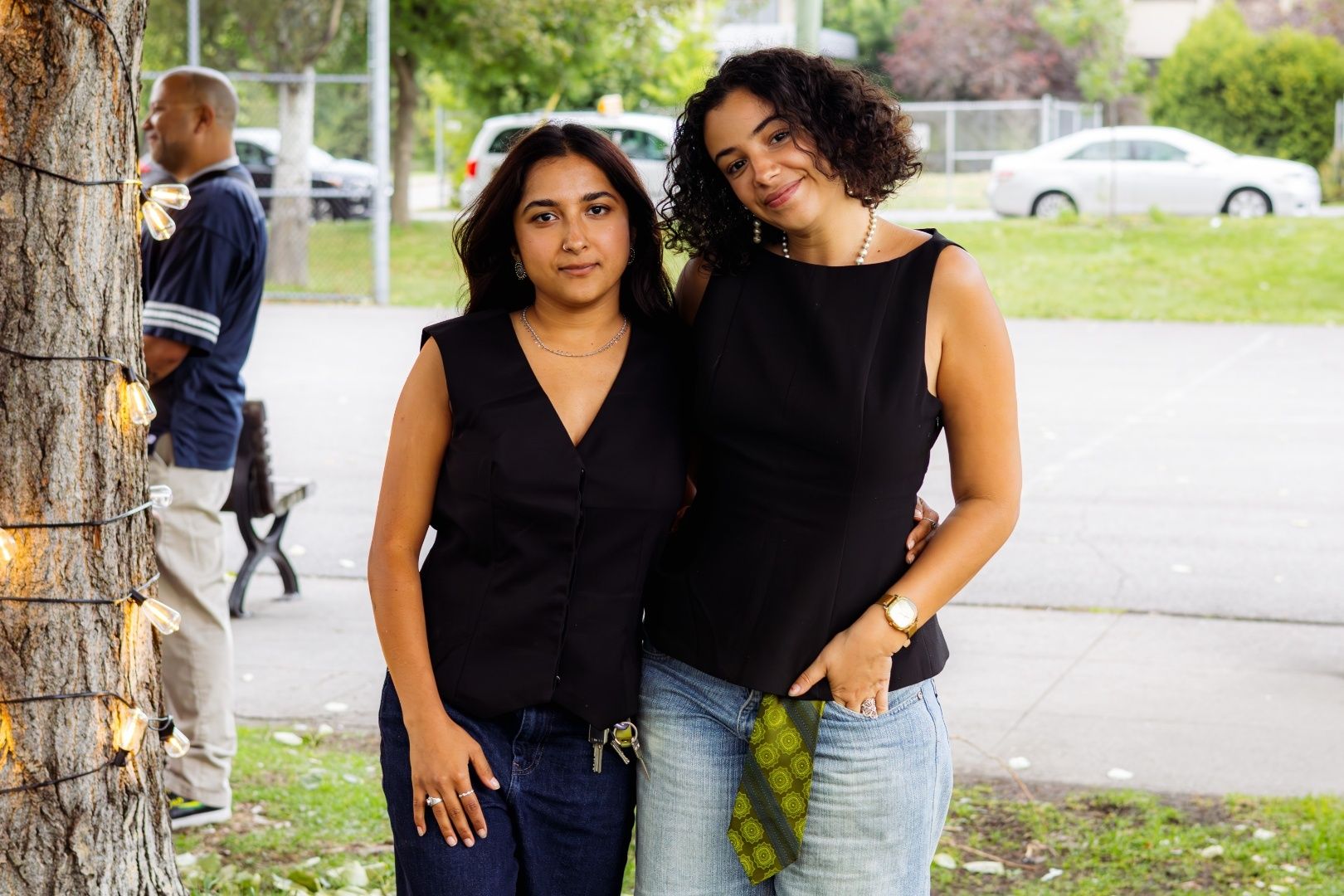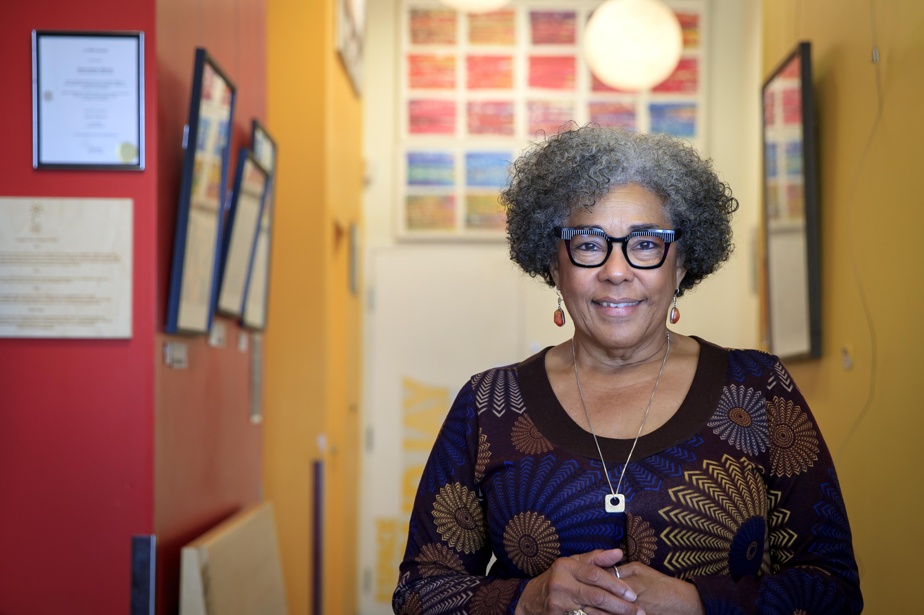Friday, September 5. At Mésy Park, voices rise around a basketball game. Behind the court, smoke from a barbecue fills the air. That evening, young people and staff from the Bordeaux-Cartierville Youth Centre (MDJBC) gathered to watch Fiche-moi la paix!!! (Leave me alone!!!), a short film by Sanah Chourouhou on street harassment. Bordeaux-Cartierville, far from being an isolated case on the island of Montreal, faces this persistent phenomenon. This is a report on an initiative that seeks to raise public awareness of a reality that is sadly commonplace in 2025.
When Sareena Kumari was 15 years old, a man stopped in front of the bus stop where she was waiting and asked her to get in his car. In another incident, while she was walking down the street, a man on a bicycle came up and slid his hand under her skirt before speeding away. Today, as a coordinator at the MDJBC, she listens to the many young people who frequent the center and who, in turn, experience this violence.
The youth centre conducted a survey of people living nearby, and the verdict was clear and definitive: everyone surveyed said they had faced a street harassment situation at least once. The alarm rang, and the 26-year-old woman refused to remain a bystander.
It was in this context that the project with the same name as the short film was born three years ago. As part of this initiative, the MDJBC has intervened in the neighbourhood's high schools to highlight the consequences of street harassment.
What exactly is Fiche-moi la paix !!!?
Launched in 2022 by Sareena Kumari, in collaboration with Émile Ndikumagenge, the director of youth services at the MDJBC, Fiche-moi la paix!!! is an initiative led with Prévention Montréal that aims to combat street harassment. The project focuses on raising awareness, providing resources, and creating a safe space for young people. It involves offering workshops in high schools in the Bordeaux-Cartierville neighbourhood and, more recently, producing a short film of the same name.
"Yes, things can change"
Screening day. Chairs are lined up in front of a podium with a microphone.

The borough mayor, Émilie Thuillier, speaks and explains that street harassment is perceived by many as an "unchangeable" reality. She emphasizes the importance of an initiative like Fiche-moi la paix!!!, which, in her eyes, is proof that "no, it's not normal; yes, things can change, and yes, it's possible to walk around safely."
Then, everyone gets up, crosses the street, and heads to the Cartierville cultural and community centre, where the film is to be screened. With bags of popcorn in hand, the young viewers' eyes are glued to the screen. Testimonies from many young girls who have experienced various forms of harassment in the neighborhood then appear. From insistent and unsolicited catcalls to dangerous situations—a young girl being chased by a drunken man—the stories follow one another, both disturbing and revealing.
La Converse asked Laurène, a 16-year-old viewer who is also one of the participants in the short film, for her thoughts after the screening. "It really shows that street harassment isn't something to be trivialized... I believe I did the right thing by talking about it."
In the documentary, the young girl recounts having been a victim of street harassment several times, right in the Bordeaux-Cartierville neighbourhood.
"As a teenager, you're developing, and that's already a big change for you as a person. At the same time, the way others look at us changes."
We then ask her to elaborate.
"It means that in sixth grade, or even in high school, you wore leggings, and there were no sexualized looks at you [...] Now, there are guys from school, and even teachers, who look at you that way. We just want to learn and move forward with our lives, but it's a pretty oppressive climate for young girls," she laments.
The risk is 22 per cent higher for racialized women
Sociologist Isabelle Courcy then appears on screen. In 2022, she directed and published a quantitative study on street harassment in Montreal. On camera, she discusses one of the conclusions of this study: visible minorities are more at risk of experiencing street harassment. As the statistical profile drawn up by the University of Montreal professor reveals, 84.4 per cent of racialized or Indigenous cisgender women have experienced harassment, compared to 62 per cent of white people. This percentage climbs to 95 per cent among racialized or Indigenous people belonging to the 2SLGBTQIA+ community.
Beyond ethnicity and gender identity, another risk factor is age. In this regard, the results of the study are clear: "The younger you are, the more you experience it." The numbers speak for themselves, with up to 91.4 per cent of cisgender women aged 18 to 24 having experienced street harassment. And nearly half of the people surveyed experienced it for the first time while they were still minors.
We ask Sanah Chourouhou—who, in addition to being a documentary filmmaker, is a youth worker at the MDJBC and has been involved in the Fiche-moi la paix!!! project for two years now—why visible minorities are, in her opinion, more at risk.
She replies: "Visible minorities are the victims of our society. There are norms and codes, and when you step outside of those norms, you are considered by some to be more vulnerable and easier to criticize, like women, people of gender and sexual diversity, and people with disabilities."
What about men?
The documentary ends, the screen goes black. The question period begins; Chourouhou and Kumari answer them. Several young people from the neighbourhood ask their questions. One last hand goes up: a young girl speaks and asks with conviction: "What is the solution to ending street harassment?"
Chourouhou immediately replies: "Educating men."
According to professor Courcy's study, men are "the main perpetrators" of street harassment, although they can also be victims. For her part, while leading the awareness workshops, Chourouhou reports being struck by the misogyny of some boys. She says that several of them came voluntarily but with already deeply ingrained values. She particularly remembers one group of young people in which some boys frequently made comments like: "It's women's fault and the way they dress!"
However, some attendees leave transformed, she concludes.
A solution for every problem?
Kumari, for her part, proposes a legislative solution. "That would really be a big dream," she says with a smile. "I'd like it to be handled at the legal level. In France, they introduced a law in 2018. I think here too, there should be penalties for people who harass others."
Kumari is referring here to the Schiappa Law. Adopted seven years ago in France by politician Marlène Schiappa, it aims to combat sexual and sexist violence. The law notably introduces "sexist outrage" as a crime to be able to prosecute street harassment, punishable by a fine ranging from 90 to 1,500 euros depending on the offense committed.
There is no comparable measure in Quebec.
The evening comes to an end. A light late-summer breeze blows outside. Everyone heads home. In front of the center, the park and the streets are poorly lit. And we are reminded why this project exists: so that everyone can go home peacefully, without having to rush, without having to look behind them.
Did you enjoy this article?
Every week, we send out stories like this one—straight to your inbox.






%20(1).jpg)
%20(2).jpg)
.png)